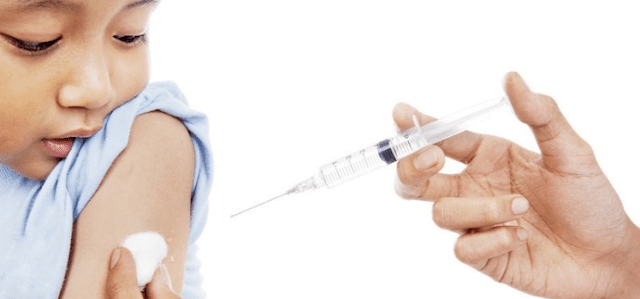Pediatrician's Guide to Managing Childhood Fevers
Fever is very common in children. Fever can happen when the child’s immune system fights off infections like colds, ear infections or coughs. The body's defence mechanisms release chemicals that fight infections into the blood. It is crucial to keep in mind that fever is a symptom, just like a runny nose, sore throat, or cough. It is not always easy to tell if the child needs treatment or evaluation. However, it is important to note how the child behaves and appears. This guide by Dr. Promilla Butani, a general pediatrician in Delhi, will detail ways to manage childhood fevers.
How to Check a Child’s Fever?
Babies and children often develop fever, which implies that they have a higher body temperature than usual. Measuring a child's temperature only by feeling their skin with both hands is inaccurate. A thermometer is the most effective way to determine whether or not the child has a fever and how high it is. The temperature can also vary depending on the part of the body where it is measured. Therefore, parents must take the temperature at the same place.
Here are some ways to check a child’s fever:
1. Oral: The thermometer is inserted under the tongue, the mouth is closed, and the readings are taken.
2. Armpit: Parents can place the thermometer under their child’s armpit, holding the arm against the side of the body. To obtain an accurate reading, it is crucial to insert the thermometer vertically. It is simple to take a baby or child's temperature this way.
3. Ear: A digital thermometer is inserted in the ear, and the readings are taken.
4. Rectal: The thermometer is inserted into the child’s bottom and rectum, and the readings are taken. This is the most effective way to check for fever.
What Type of Thermometer Should Be Used?
According to the best pediatrician specialist in Delhi, a rectal thermometer provides the most accurate reading if the child is younger than three years old. An oral thermometer can be used for older children.
What are the Causes of Fever in Children?
Fever in children can be caused due to several reasons:
- Viral infections (cold, flu, etc.)
- Allergies
- Medication
- Bacterial infections (Pneumonia, ear infection, strep throat, etc.)
- Inflammatory diseases
- Inflammatory bowel diseases
What are the Symptoms of Fever in Children?
A child with a fever will fall ill. The child may:
- Be fussy
- Look pale
- Feel hot or cold to touch
- Have goosebumps or tremors
- Be thirsty
Points to Remember When Managing a Child’s Fever
- Dress the child lightly. Excess clothing traps body heat and prevents the temperature from dropping. Parents should avoid heavy blankets and instead use light sheets.
- Parents must make sure their child drinks plenty of fluids.
- Give the child a lukewarm bath. Make sure that the water does not get cold. Do not allow the child to shiver from cold water, as this increases their body temperature.
- Give the child medicines to manage the fever. Parents can give their children ibuprofen or acetaminophen based on the dosage recommendations for their age (only if the doctor recommends it).
When Should I Call the Doctor If My Child Has Fever?
If the child has a fever and is younger than three months of age, then call the doctor just to be safe. It is also a good idea to see a pediatrician if the child has frequent fevers or prolonged fever. If the child is eating or drinking well and is happy or playing, then the child’s fever is not generally a cause of concern. However, if the child is not eating properly, it is best to seek help from a renowned pediatrician. Parents must seek immediate assistance if the child has severe breathing issues, seems confused, does not eat properly, faces difficulties in walking, has severe headaches, or has seizures.
With the tips discussed above, parents can expect the child’s temperature to improve. If the fever does not subside or the child has other symptoms, like vomiting, parents must consult a pediatrician immediately.
Seek Help From a Renowned Pediatrician
One can consider consulting Dr. Promilla Butani, a pediatrician in Delhi at Dr. Promilla Butani's Pediatrics Practice to learn more tips on easing fever symptoms. The expert pediatrician has experience spanning over five decades. She will gather information about the child's symptoms, duration of fever, and any associated signs like cough, rash, or vomiting and recommend proper medications to manage the child’s fever. Besides treating fever in children, the expert pediatrician also treats jaundice, obesity, asthma and many other chronic conditions.
To consult Dr. Promilla Butani, a renowned pediatrician, visit at Dr. Promilla Butani's Pediatrics Practice.




Comments
Post a Comment